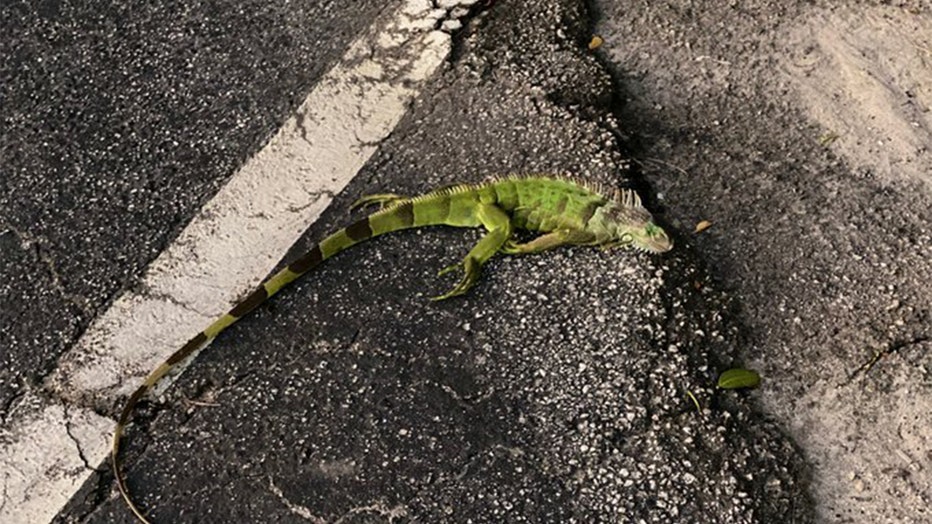South Florida forecasters warn 'falling iguanas are possible' on cold Christmas Day
MIAMI, Fla. - It will soon be cold – by Florida standards – and the National Weather Service in Miami issued an unofficial warning for what could fall from above, and it’s not snow.
South Florida forecasters said "falling iguanas are possible" on Christmas Day due to an incoming cold front on Christmas Eve. Iguanas are cold-blooded creatures, meaning they become stunned in cold conditions and sometimes appear dead.
Once temperatures drop to the 40s, they become immobile and therefore, could fall out of trees. Wildlife experts say you shouldn’t touch them. Eventually, they’ll warm back up and move again.
"Never take cold-stunned iguanas into your home! These are wild animals and may act defensively once they warm up and recover," according to the Florida Fish and Wildlife Conservation Commission.
It's not the first time South Floridians have witnessed seemingly-dead iguanas fall from the trees during a cold snap.
Back in January, NWS Miami issued the same alert.
"This isn't something we usually forecast, but don't be surprised if you see iguanas falling from the trees tonight as lows drop into the 30s and 40s," NWS Miami wrote on Twitter at the time.

Cold-stunned iguana in Virginia Key (Erik Blake)
In January 2018 in West Palm Beach, Floridians flooded social media with photos of immobilized iguanas.
FWC officials say green iguanas are an invasive species and are not native to the Sunshine State.
They have caused damage to infrastructure, including seawalls and sidewalks, according to agencies in charge of managing the hundreds of miles of canals that channel water throughout South Florida.
A prolonged cold spell in 2010 reduced the number of green iguanas in South Florida, but the population has exploded since then.
They’ve become infamous for nuisance pool pooping and munching on ornamental landscapes, giving rise to a new industry: iguana-removal experts.

